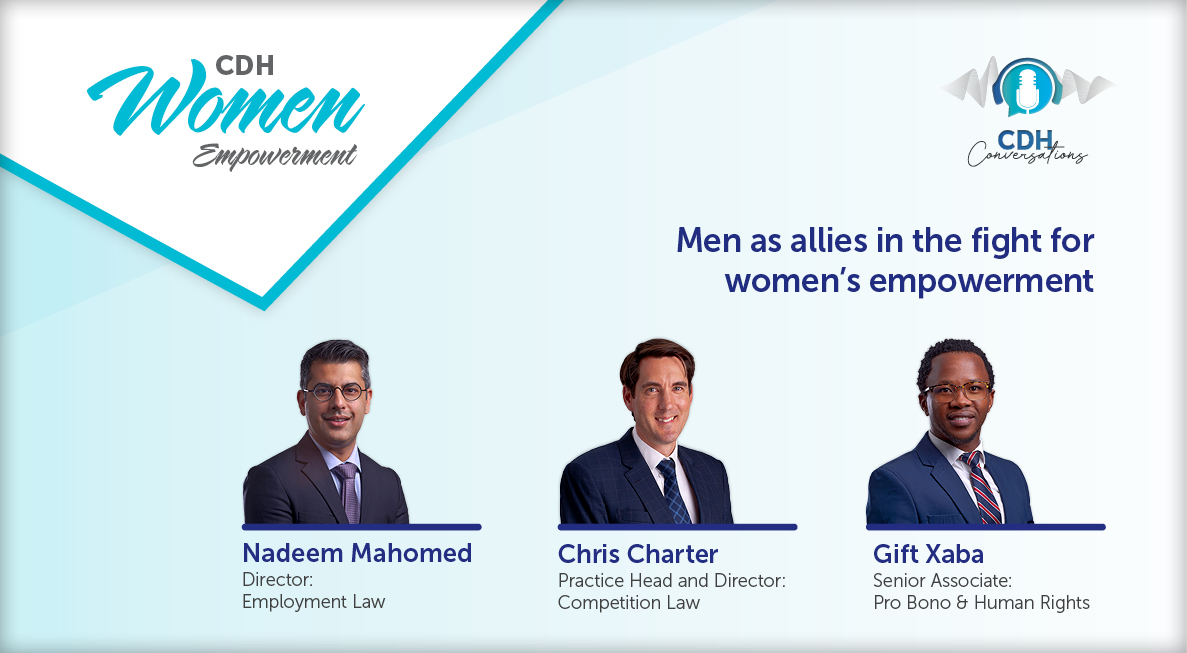The significance of alternative remedies in urgent interdictory proceedings
During 2014, numerous urgent applications were launched by employees in the High Court and the Labour Court seeking to interdict their employers from proceeding with disciplinary action against them. Marcel Golding, the chief executive officer of e.tv, brought the most recent of such applications.
In Golding v HCI Managerial Services (Pty) Ltd and Others (C933/2014) [2014] ZALCCT 52 Golding launched an urgent application before the Labour Court to interdict a disciplinary hearing and his suspension on the grounds of unlawfulness. On 14 October 2014, Golding was charged with several allegations of misconduct, including dereliction of his duties, gross negligence, dishonesty, breach of fiduciary duties and breach of the ethics policy in relation to his position as executive chairman of Hosken Consolidated Investments Limited (HCI). Essentially, the charges relate to Golding's unauthorised purchase of shares in Ellies Holdings Limited.
The disciplinary hearing was scheduled to start on 27 October 2014. Golding was suspended pending the disciplinary hearing. Having received notice of the disciplinary hearing on 14 October 2014, Golding launched his urgent application on 22 October 2014. The court found that the urgency was self-created. While Golding had been notified of the disciplinary hearing on 14 October 2014 he had taken nine days to draft his urgent application, affording the employer less than one day to file answering papers.
Golding's challenge in relation to the alleged unlawfulness of the disciplinary hearing related to the allegation that HCI, which took the decision to discipline Golding, was not his employer. Golding maintained that Sabido and e.tv were his employer and, accordingly, HCI did not have the power to discipline him. The court agreed that Golding was clearly an employee of Sabido and e.tv, but stated that this did not preclude him from being an employee of HCI. The court referred, with approval, to decisions of the Labour Appeal Court and Supreme Court of Appeal in which the court found that highly-placed employees in a group situation who perform services on behalf of a number of entities usually have more than one employer.
The court analysed the facts, including that HCI Managerial Services (the company secretary of HCI) pays Golding's salary, Golding receives no remuneration from Sabido or e.tv, the IRP5 issued to Golding reflects payments and remuneration received from HCI Managerial Services, Golding participates in the HCI employee share scheme and Golding is the executive chairman of HCI. The court concluded that on the evidence before it, Golding is an employee of HCI. Having made this finding the court held that the decision of HCI and HCI Managerial Services to discipline Golding was not unlawful. On the basis that HCI had the power to discipline Golding, the court also found that the decision to suspend him was not unlawful.
Golding not only challenged the lawfulness of his suspension, but also the fairness thereof. He alleged that his suspension was unfair because he was not given a hearing before the decision to suspend him was taken. The court considered the fact that in the case of a precautionary suspension, that is, pending a disciplinary hearing and not as a sanction for misconduct, the employee is usually suspended on full pay, resulting in any prejudice flowing from the suspension being significantly contained and minimised, and that the period of the suspension is typically limited in duration.
However, the court went on to find that while these facts may result in the right to a hearing being attenuated in the case of a precautionary suspension, the fact that Golding was not given an opportunity to make any representations before the suspension, may be unfair. Having made this finding, the court proceeded to address the further hurdle faced by Golding, namely the fact that he had an alternative remedy. Golding had a remedy in terms of s186(2) of the Labour Relations Act, No 66 of 1995, ie a claim for unfair labour practice. This claim must be referred to the Commission for Conciliation, Mediation and Arbitration (CCMA) or bargaining council for conciliation and, if not resolved at conciliation, for arbitration – and not to the Labour Court. Golding referred an unfair labour practice dispute to the CCMA one day before he launched his urgent application before the Labour Court. He had taken no steps to expedite the CCMA referral. The court found that no exceptional circumstances were shown to warrant the court’s intervention and the application was dismissed with costs.
Save for very exceptional circumstances, the court will not come to the assistance of an employee who can exercise an alternative remedy.
The information and material published on this website is provided for general purposes only and does not constitute legal advice. We make every effort to ensure that the content is updated regularly and to offer the most current and accurate information. Please consult one of our lawyers on any specific legal problem or matter. We accept no responsibility for any loss or damage, whether direct or consequential, which may arise from reliance on the information contained in these pages. Please refer to our full terms and conditions. Copyright © 2026 Cliffe Dekker Hofmeyr. All rights reserved. For permission to reproduce an article or publication, please contact us cliffedekkerhofmeyr@cdhlegal.com.
Subscribe
We support our clients’ strategic and operational needs by offering innovative, integrated and high quality thought leadership. To stay up to date on the latest legal developments that may potentially impact your business, subscribe to our alerts, seminar and webinar invitations.
Subscribe



